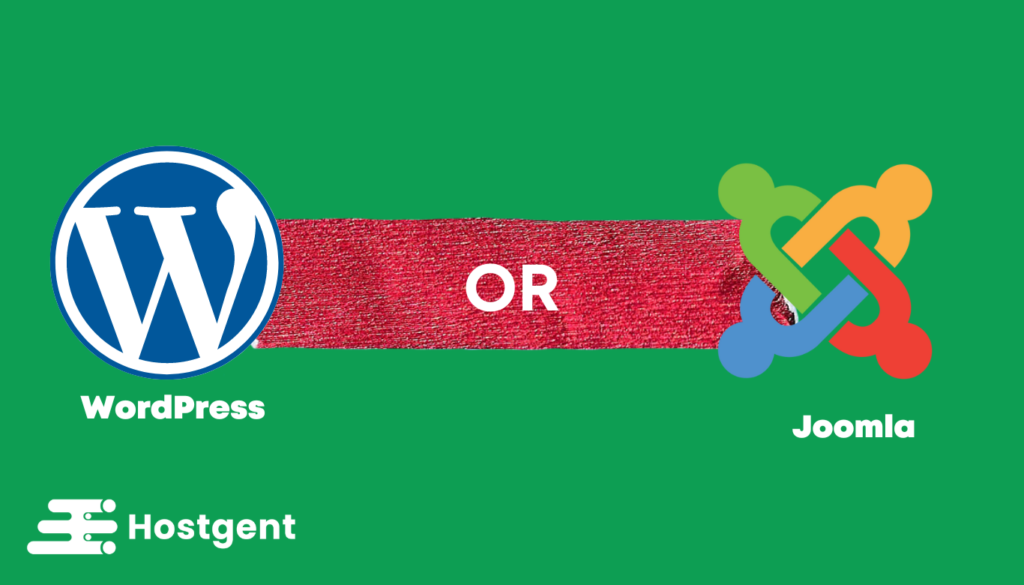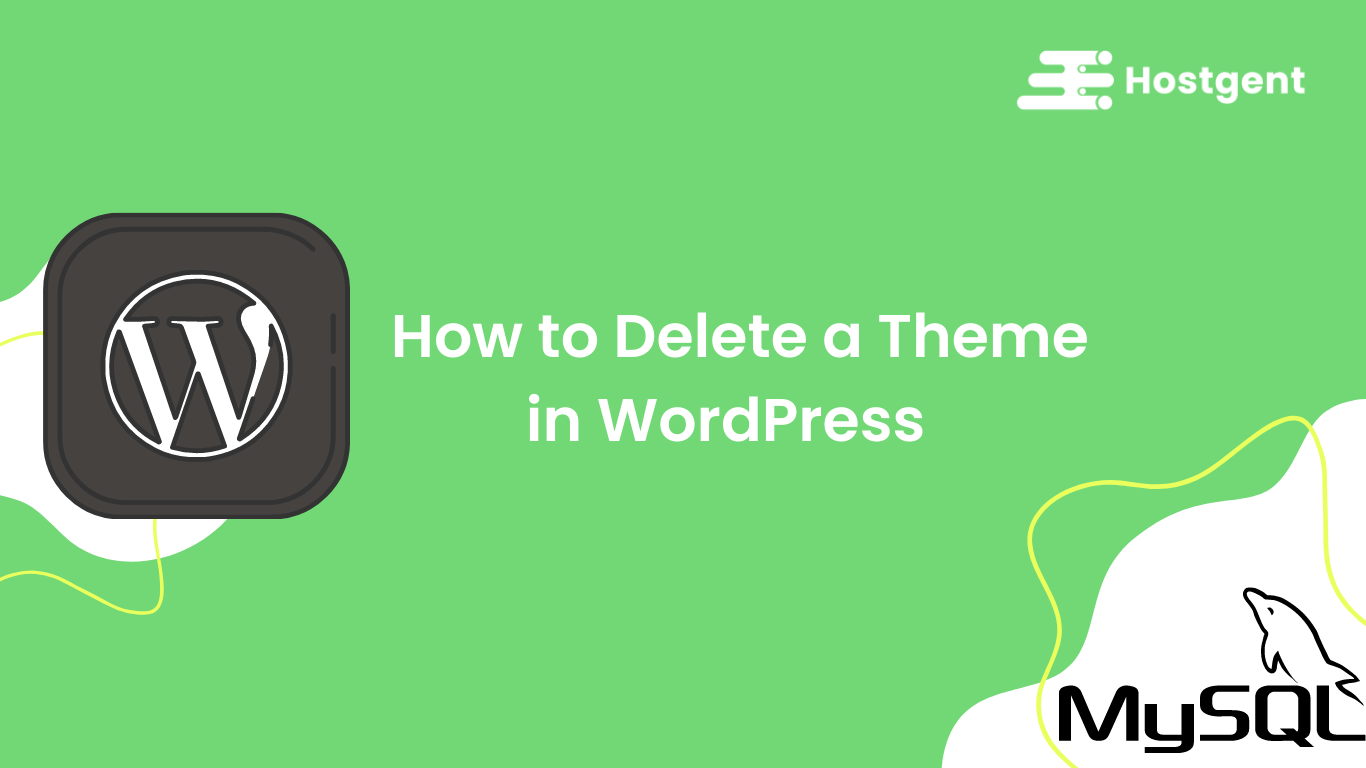While WordPress powers more than 43% of all websites on the internet, it’s not the only open-source content management system (CMS) in the market. There are other popular software options available like Joomla and Drupal.
In this blog, we will compare WordPress vs Joomla to find out which one is the best choice for your business
WordPress :
WordPress comes with a famous five-minute install. Most WordPress hosting providers also offer one-click installation of WordPress. This makes it fairly easy for a new user to start a WordPress blog or website in minutes, not hours.
The post-install user experience of WordPress is way better than Joomla or Drupal. The user sees a simple clean-cut user interface with the menus to create posts, and pages, or start customizing appearance and themes.
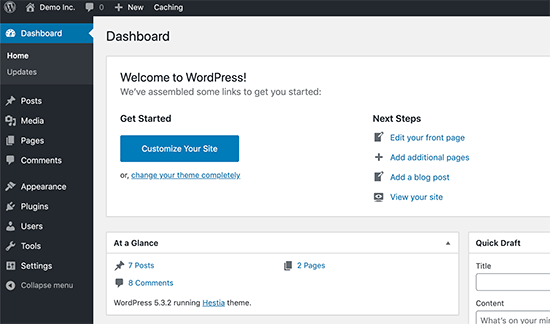
WordPress Advantages :
Ease of use – WordPress is generally regarded as being the easiest content management system to use, especially for non-developers.
Huge support community – because WordPress is so popular, it’s easy to find help via the massive third-party ecosystem of blogs, Facebook groups, and developers.
Lower development costs – this huge community also means you can generally get development work done a bit cheaper.
Joomla :
Joomla installation may not look as quick as WordPress, but it has very similar steps. Apart from that many shared hosting providers offer one-click install packages for Joomla as well.
After the installation, the user lands on a control panel that is not as straightforward as WordPress. There are just too many menus to click on and customize your site.
Joomla fans would say that’s because Joomla is a lot more powerful than WordPress, but we don’t believe that to be true.
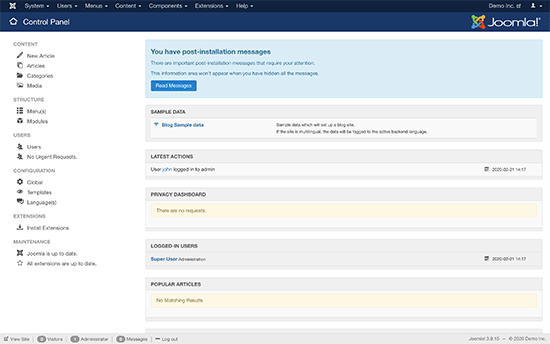
Joomla Advantages :
More advanced user management – Joomla offers a more advanced system for user access controls and user management out of the box.
Flexible for different content types – Joomla’s components and modules give you a bit more flexibility for displaying non-standard content types.
Multilingual support – Joomla has multilingual support built-in to the core, while WordPress requires you to use a third-party plugin.
Are WordPress And Joomla Equally Secure?
The core software of both Joomla and WordPress is secure. Additionally, each platform also features third-party plugins or extensions to add additional security, as well as easy in-dashboard update systems to help keep everything up-to-date.
With that being said…human error is always a real thing and, because each platform is extensible, there are bound to be security issues.
WordPress Security :
According to Sucuri’s Hacked Website Report – 2016/Q3, WordPress accounted for 74% of the hacked websites in Sucuri’s sample, which is ~25% larger than its market share of 58.9% (at the time):
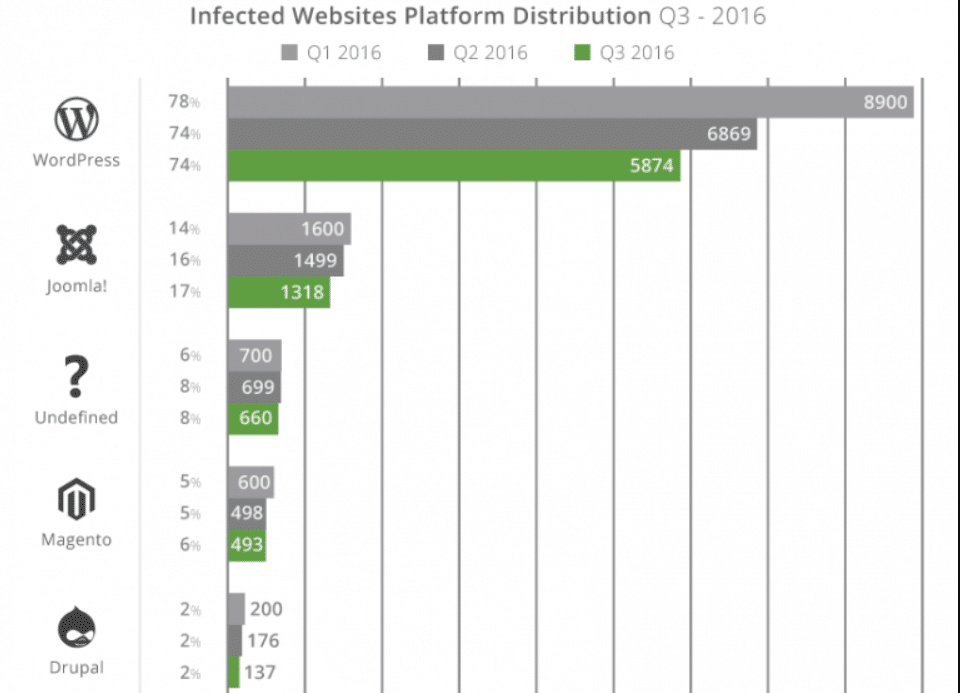
Joomla Security :
In that same report, Joomla sites accounted for 17% of all the hacked websites, which is ~132% higher than Joomla’s 7.3% market share at the time:
How Many Plugins And Themes Does WordPress Have?
Currently, WordPress has:
54,000+ free plugins at the official WordPress.org plugin directory, plus thousands of premium plugins
5,000+ free themes at the official WordPress.org plugin directory, plus thousands of premium themes
How Many Extensions And Templates Does Joomla Have?
Currently, Joomla has:
~8,000 extensions are listed at the official Joomla extension library
There’s no official Joomla template library, so it’s hard to get a number for available Joomla templates. Some basic Google searching turns up a wealth of (mostly) premium Joomla templates, though.
Conclusion:
Joomla and WordPress are all fantastic content management systems. Joomla comes with many more built-in features than WordPress.
However, WordPress beats them with its ease of use, huge global community, plugins, and themes. We feel that most non-developer users would find it much easier to build with WordPress than Joomla.
With over 59,000 WordPress plugins, you can add just about any feature or build any type of website that you like (without writing code).
Overall Winner: WordPress

